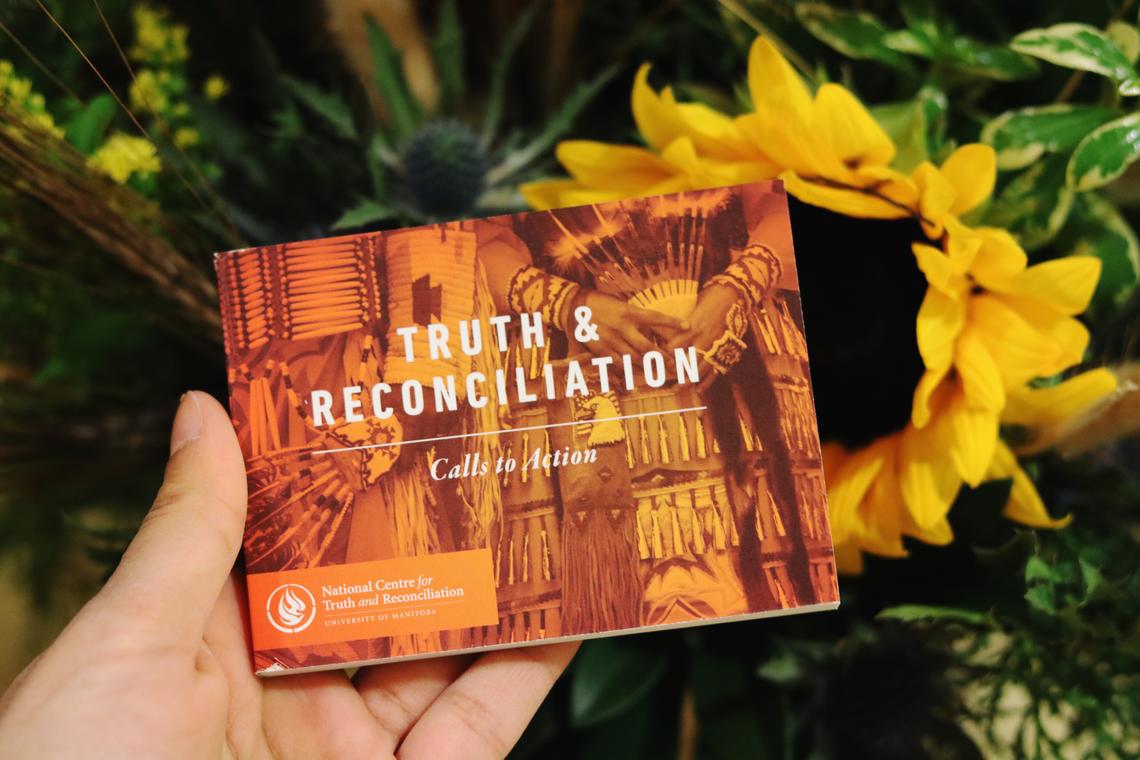June 2, 2020
Research leaders at UCalgary deepen their understanding of Indigenous approaches to scholarship

For Dr. Jenny Godley, Ph.D, associate professor in the Department of Sociology and current chair of UCalgary’s Conjoint Faculty Research Ethics Board (CFREB), and Kate Williams, manager, research ethics and compliance in research services, receiving a ii’ taa’poh’to’p Intercultural Capacity Building Grant in 2019 meant they could bring much-needed training on Indigenous research processes and data dissemination to the ethics unit.
- Photo above: Smudging is part of approaching ceremonies, events, gatherings, and research in a good way. Photo by Colleen De Neve, for the University of Calgary
Becoming aware of how research affects Indigenous communities and learning about Indigenous ethics is imperative to ensuring that research-intensive institutions like UCalgary are addressing reconciliation and transformation in a useful, productive, and meaningful way. UCalgary's Indigenous Strategy, ii’ taa’poh’to’p, encourages researchers working with Indigenous groups to rethink how information is gathered, such as through Indigenous knowledge keepers, storytelling and oral traditions, and how research is disseminated.
Ownership, Control, Access, and Possession
Ownership, Control, Access, and Possession (OCAP) is an Indigenous-based research ethics guideline document. Online OCAP training is now available for researchers, focusing on how research processes that impact and involve Indigenous communities should be conducted through a framework of traditional cultural knowledge. The OCAP training is developed in partnership with Algonquin College and consists of learning modules such as Community Harm, and Barriers and Levers, and includes testing prep and a final exam.

The Truth and Reconciliation Commission’s 94 Calls to Action lay the foundations for genuine decolonization and Indigenization in Canada
Colleen De Neve
Godley and Williams know that, historically, institutions have had a very rigid Eurocentric way of approaching ethics. Therefore, the Intercultural Capacity Building Grant is being applied to strengthen awareness of Indigenous research methodologies and ethics by offering OCAP training to ethics board members and staff.
“The training provides an important foundation as we evolve to better support Indigenous research,” says Williams.
Before the Intercultural Capacity Building Grant was even on the radar, the CFREB had already been in discussions with Indigenous representatives and taking initiatives to learn about research ethics through an Indigenous lens. When Godley heard about the grant through the Office of the Vice-Provost (Indigenous Engagement) she immediately contacted Williams about applying for the grant to provide OCAP training for ethics staff and board members.
One of the distinctions between traditional research ethics and Indigenous research ethics is that Indigenous research begins with first building relationships with the leaders and members of the community. “Early relationship development is rarely considered in ethics applications,” says Godley.
We are only slightly aware of the harm to Indigenous communities and individuals that some research has caused.
Godley adds, “We were already concerned over the lack of familiarity with OCAP on the board and when news of the grant arrived, we applied to provide the training to staff and board members.”
So far, about 30 individuals, both staff and ethics board members, have registered for OCAP training made available and supported by the university’s ii’ taa’poh’to’p Intercultural Capacity Building Grant, which has opened new professional development opportunities as trainees take OCAP into other areas of research and reconsider how research gets done.
Apply for an Intercultural Capacity Building Grant by June 15
Do you have a project that contributes to Indigenization at UCalgary? The Intercultural Capacity Building Grant applications are open to students, faculty, and staff, and are due on June 15.



